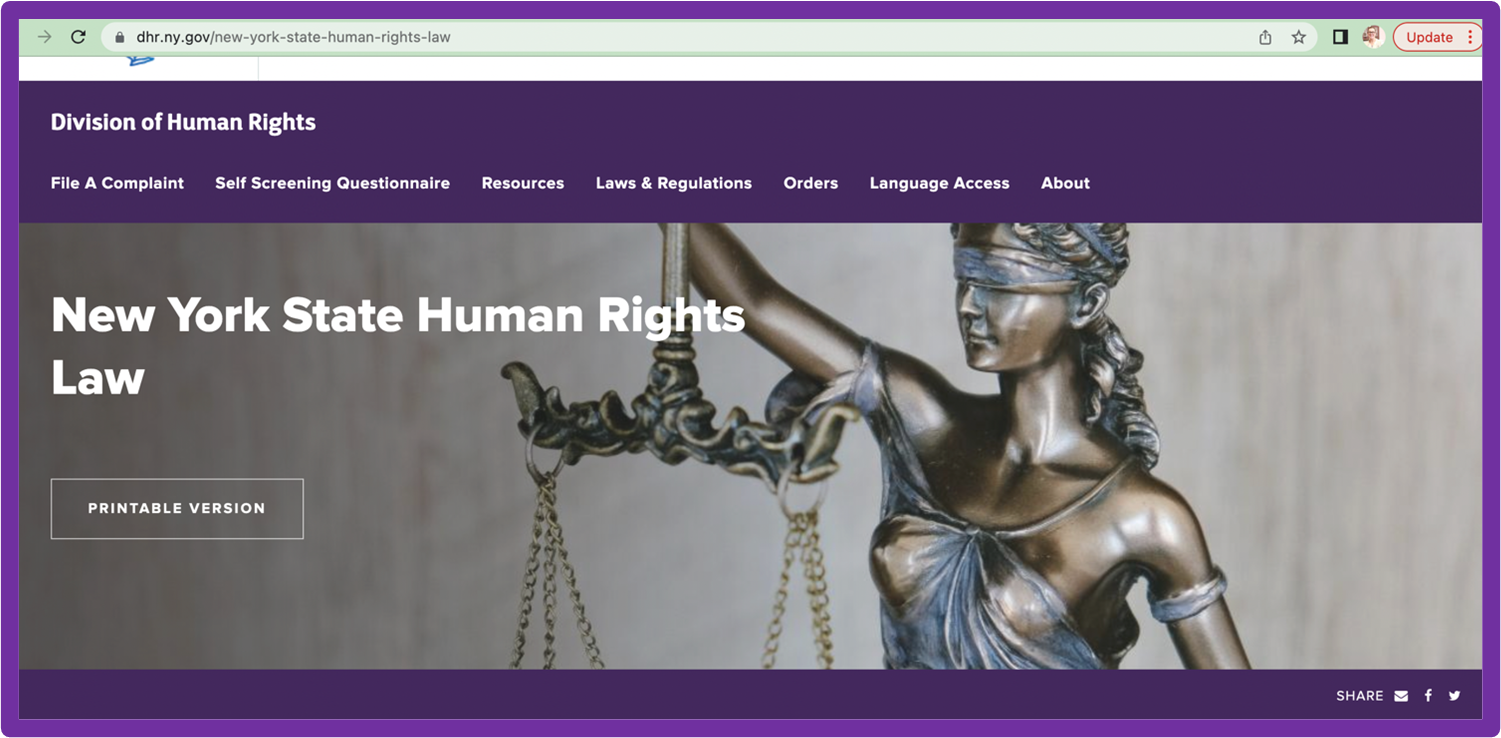Submission Date:
Question:
[NOTE: We didn't get this as a submission to "Ask the Lawyer", but we wish we had...]
Our library board is considering a resolution to bar displays celebrating Pride Month. The ban focuses on, but is not limited to, displays in children's/YA areas. Is this a legal issue?
Answer:
YES. Expressly barring library displays based on categories protected by law, such as sexual orientation and gender, is--among other things--a legal issue.
This is not to say a library can't pass a policy on library displays. A library could easily implement a policy that requires displays to be timely, that they be reflective of the needs of the community, and that they display an array of materials from different sources. Such a policy, done thoughtfully and with director and attorney input, could be perfectly appropriate, legal, and in line with the mission of a public library.
In addition, such a policy could address and provide established and well-thought-out procedures for the library to address:
- Concerns that a library display violates the bar on political activity by a library;
- Concerns that a library display is age-inappropriate;
- Concerns that the content in a library display is illegal;
- Concerns that the display could objected to by members of the community; and
- Concerns that the display is boring, non-engaging, and/or irrelevant.
But what such a policy could NOT do (without tripping legal concerns) is make blanket rules about display content based on categories that align with identities protected by law. [1]
Further, if such decisions are made in a vacuum, without policy (like an ad hoc board resolution), they run the risk of being both discriminatory and "arbitrary and capricious." Such a ban--especially coupled with the dialogue and community interaction that might precede and follow it--could set the stage for:
- A claim of discrimination by a trustee;
- A claim of discrimination by an employee;
- A civil rights claim by a patron;
- A report triggering an investigation by the New York Division of Human Rights[2];
- A really awkward moment at the next sexual harassment training, since in New York, "sexual harassment" includes harassment on the basis of sex, sexual orientation, gender identity and the status of being transgender.
In addition, there are many local municipalities that have their own protections for certain protected categories, including sexual orientation and gender identity and expression. So there is a risk of implicating not just state and federal, but local law, as well.
Of course, such a ban is FAR MORE that a legal issue. But amidst everything else, it IS a legal concern. And while their primary duty is to serve the library's mission, public library trustees also have a fiduciary duty to guard against claims that the library has violated state, federal and local civil rights laws.
How would a library board walk back having taken such a position? Ideally, very quickly and decisively, with confidential legal advice from their local attorney[3]. This is because in and of itself, such a ban might not be enough to trigger legal action...rather like how just vodka isn't enough to make a martini. But who knows when the vermouth will show up?
That said, if a board is at this point (and especially if the library director and staff are watching, without being consulted[4]), even after serious consideration of a such a policy or directive, change is possible.
After all, each and every library trustee and employee in New York (and even their lawyers) can always learn more about the New York Human Rights Law,[5] federal civil rights law, and perhaps even the protections in their municipality.
And public libraries are there to enable learning by everybody.
Everybody.
[1] In New York, that includes: race, creed, color, national origin, sexual orientation, gender identity or expression, military status, sex, disability, marital status, or status as a victim of domestic violence.
[2] https://www.nysenate.gov/legislation/laws/EXC/296 This links brings the reader to a partial list of barred discriminatory actions. Here is an excerpt (in other words, there's more): " 2. (a) It shall be an unlawful discriminatory practice for any person, being the owner, lessee, proprietor, manager, superintendent, agent or employee of any place of public accommodation, resort or amusement,
because of the race, creed, color, national origin, sexual orientation, gender identity or expression, military status, sex, disability, marital status, or status as a victim of domestic violence, of any person, directly or indirectly, to refuse, withhold from or deny to such person any of the accommodations, advantages, facilities or privileges thereof, including the extension of credit, or, directly or indirectly, to publish, circulate, issue, display, post or mail any written or printed communication, notice or advertisement, to the effect that any of the accommodations, advantages, facilities and privileges of any such place shall be refused, withheld from or denied to any person on account of race, creed, color, national origin, sexual orientation, gender identity or expression, military status, sex, disability or marital status, or that the patronage or custom thereat of any person of or purporting to be of any particular race, creed, color, national origin, sexual orientation, gender identity or expression, military status, sex or marital status, or having a disability is unwelcome, objectionable or not acceptable, desired or solicited.
[3] And perhaps a check-in with their "directors and officers" insurance carrier.
[4] This type of issue is part of why the author consistently recommends trustees be trained on non-discrimination policies (including sexual harassment).
[5] https://dhr.ny.gov/new-york-state-human-rights-law

Tag:
Board of Trustees, Discrimination, Ethics, Policy, Displays, First Amendment, Intellectual Freedom, New York Civil Rights Law
